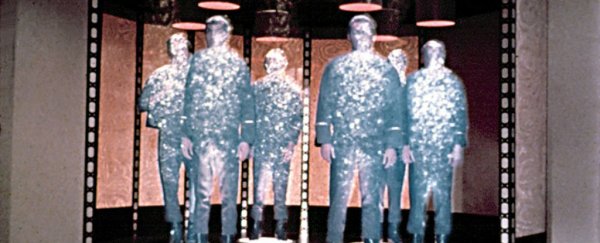We're still a long way from the teleportation machines of sci-fi movies becoming a reality, but assuming the technology is one day invented, how will our bodies react to being beamed from one point in space to another?
That's the question being asked by neuroscientists at the University of California, Davis, and they've focused specifically on whether the human brain is ready for teleportation.
The answer, as Motherboard reports, is pretty much a yes. It seems that our brains can retain certain navigational information, even when all the live inputs 'go dark' – in other words, the brain isn't completely frazzled by hopping from one place to another. Of course, the researchers couldn't use a teleportation machine, but they were able to build a computer simulation to accurately convey the experience of using such a device.
Every time we move around, there are certain rhythmic brain patterns that appear, and those patterns also show up when we move through virtual space on a computer. So, by putting together a VR teleportation experience, the team was able to get a good idea of how a real-life teleporter might affect us.
Three epilepsy patients who already had brain-monitoring electrodes implanted in their brains (to monitor for signs of seizure) were chosen to take part in the study.
These neural oscillations continued during simulated teleportation, which suggests that our navigational awareness might remain functioning while we're teleported. That's a big deal, because that theory runs contrary to most neurological models.
"The idea that vestibular/proprioceptive [sensory] input is fundamental to how we code space has dominated in the field of spatial navigation for several decades," Arne Ekstrom, the lead author of the study, told Motherboard's Michael Byrne. "Our results fundamentally challenge this viewpoint and thus require revision of models we have assumed this to be correct for quite some time."
Amazingly, the rhythmic patterns varied depending on how far the subjects were teleported: the researchers think our brains might fall back on some kind of memory-related spatial coding that kicks in when we don't have live information about our surroundings to draw upon.
When the tests were repeated without the teleporter simulation, the hippocampal oscillations diminished, as you would expect. So the next question to answer is what data those oscillations contain.
We should point out that this study uses a very small sample size and involves a specific type of person - those who already have an epilepsy condition - but what's interesting is that all three volunteers showed the same brain patterns during the test, and it's an intriguing foundation for future studies to build on.
The group's work has now been published in the journal Neuron.
